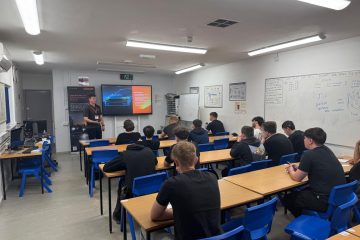The Mirror, and local ‘Live’ outlets owned by Reach PLC, are highlighting a TikTok video that advises drivers to ignore the engine light, and reset it by removing the battery negative terminal.
In another example of mainstream media outlets not understanding the importance of the aftermarket, the publication also uses the phrasing of the video, claiming that the ‘tip’ could stop drivers ‘getting cheated’ in the headline.
The article follows a video by TikTok user @master_driver666, who has over 847,000 followers on the platform. While the user is based in Asia, the social media arena has no boundaries, and with major media titles reporting it, the information will likely be distributed to a wide portion of the UK market.
The user highlights the engine warning light, then proceeds to tell viewers how they can avoid ‘being cheated’ by garages. They highlight the vehicle battery, remove the terminal from the negative pole, wait 10 seconds, then reattached. Once the car is started again, the light turns off, due to being reset.
The Mirror reports that “not everyone was impressed with the hack” around the engine light switch-off further down its article, highlighting one comment that stated: “It does not work if there is a problem with the engine.”
Following this, the article continues: “Typically, when the yellow helicopter-fault light [engine light] illuminates, it indicates an engine fault. Despite this warning, your driving experience may remain unaffected, although it is probably the fuel you have used is of substandard quality.
“You might encounter some peculiar difficulties such as a loss of power, akin to your car limping due to misfire, or the engine not responding as expected. If you have attempted a quick fix and it is still not functioning properly, it would be advisable to visit your local garage or consult your car’s manual.”
Missing the point of the engine light
The advice given in the article that the engine light may be on due to substandard fuel, and that the driving experience may remain unaffected, is of course completely wrong. Once an engine light is seen, drivers should be limiting use of the vehicle and booking for a diagnostic check with their local garage.
@autorepairfocus Here we go again… poor advice on #tiktok being shared by mainstream media, including @Daily Mirror – highlighting a total lack of car maintenance understanding and leaving it to the #aftermarket to pick up the pieces… . #carrepair #mechanic #enginelight #diagnostic #fakenews #dailymirror #carservice #garage #advice #car #technician #knowledge #reaction #carsoftiktok #carscene ♬ original sound – Auto Repair Focus
However, mainstream media outlets seemingly are missing the point, misleading motorists and casting independent businesses as bad guys, all for clickbait headlines.
The online arena is a battlefield, where clicks are important, especially for revenue. This has led some outlets to create sensationalist stories that appeal to those looking for ways to save money, and find someone to blame for high costs. It appears pageviews are more important than genuine advice and support in some quarters.
The issue of the engine light and the work associated with it has been a flash point of industry demonisation for years. Those who do not understand the complexities of engine diagnostics will point to the cheapness of code readers, while the industry knows a fault code is only part of the puzzle.
Fighting back
There are a number of technicians and independent businesses using social media to fight back against common misconceptions, highlighting the complexities of various jobs, answering consumer questions, or bemoaning the standards that drivers have when it comes to vehicle servicing.
It certainly appears, however, that more needs to be done to educate drivers. Money-saving videos are more popular than ever, whereas advice pieces are often missed.
However, if the industry continues to plug away and increase its popularity, the mainstream media may have to take notice of the aftermarket, and start thinking about the benefits of servicing, rather than advising that an engine light is fine to ignore.



